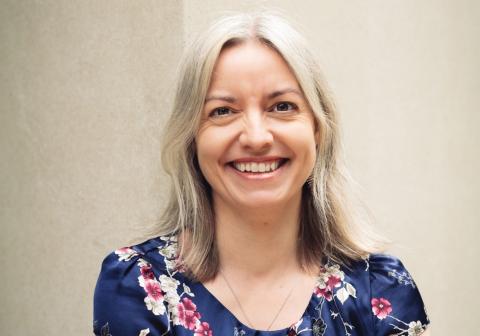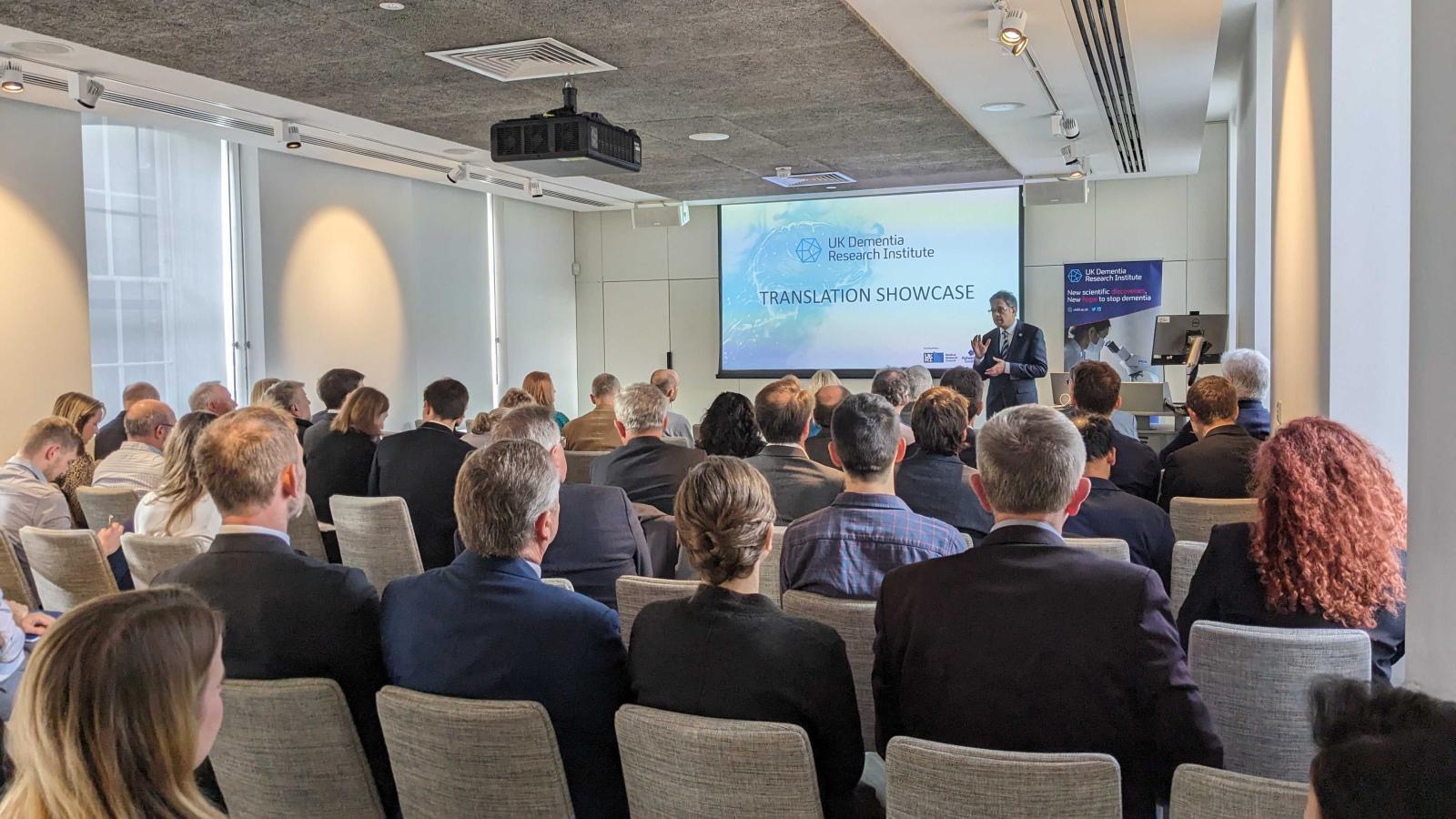The UK Dementia Research Institute conducts world-leading science into neurodegenerative conditions, principally funded by the Medical Research Council (MRC). Our goal, through research, is to transform the lives of people affected by dementia and other related neurodegenerative conditions.
We cannot do this alone. The UK DRI is central to a rich and connected dementia research ecosystem, and we partner closely with colleagues in industry, academia, public services, and the charity sector, across the UK and internationally. These partnerships are vital to accelerate the delivery of new diagnostics, technologies and treatments for neurodegenerative conditions, to ultimately achieve our vision of healthy brain ageing for all.
strategic partnerships with industry
major charity partners
uniquely competitive IP structure, under a single contractual framework
World-leading dementia science
Scientific excellence is at the heart of our mission. The UK DRI is one of only five national MRC institutes, delivering scientific research “at the leading edge” of the field (MRC quinquennial review panel, 2022). In the short time since we were established, the UK DRI has quickly become one of the most cited institutes globally in the field of neurodegeneration.
Partnering with the UK DRI offers access to nearly 1,000 experts in neurodegeneration research, who are pioneering new techniques, technologies and discoveries. The calibre of our scientists has been widely recognised: of our 60 Group Leaders, two have won the prestigious global Brain Prize, six are Fellows of the Royal Society, two have won the Breakthrough Prize in Life Sciences, and three have won the Potamkin prize. At present we have eight researchers on the Clarivate Highly Cited Researcher list.
At the UK DRI, everything starts and ends with the science. Our collaborative structure encourages the exchange of fresh ideas and novel partnerships across disciplines and disease areas. Our scientists partner widely with colleagues and organisations across the UK and in over 30 countries.
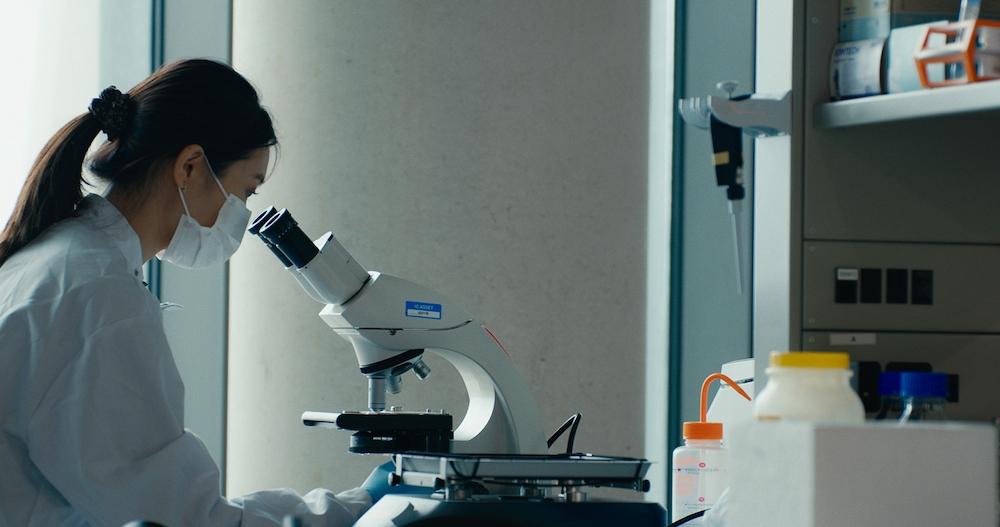
Track record of translation
Since the UK DRI was established, we have signed five major strategic partnerships with industry, launched four spin-out companies (including AviadoBio, $80M Series A), and in 2022, we announced a £30m translational partnership with medical research charity LifeArc, which is accelerating our activities in this space.
Most recently, the UK DRI has announced a £20m partnership with the National Institute for Health and Care Research (NIHR), to accelerate the translation of new scientific discoveries into therapeutic impact for people living with dementias.
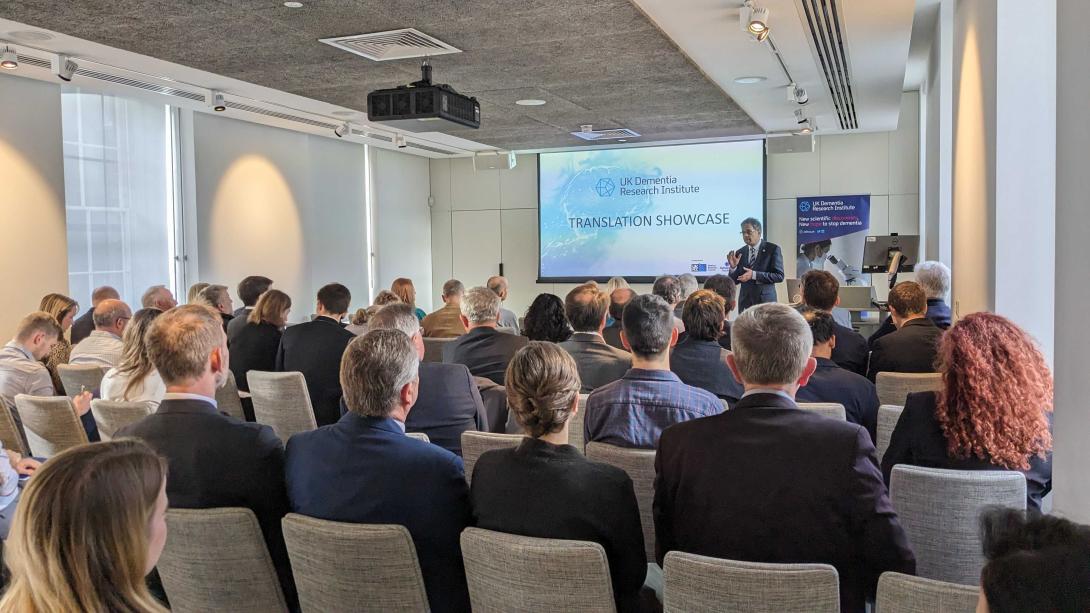
UK DRI Director Siddharthan Chandran welcoming partners to our translational showcase event
Innovation-friendly model
The UK DRI’s collaborative, open operating model and uniquely competitive IP structure have been critical to these deals and are highly valued by our industry partners.
From our inception, we worked with our partner universities to agree a single contractual framework for the whole UK DRI. This innovation-friendly model has streamlined the commercialisation process, facilitating access to IP generated by UK DRI members across host universities.
Our host universities




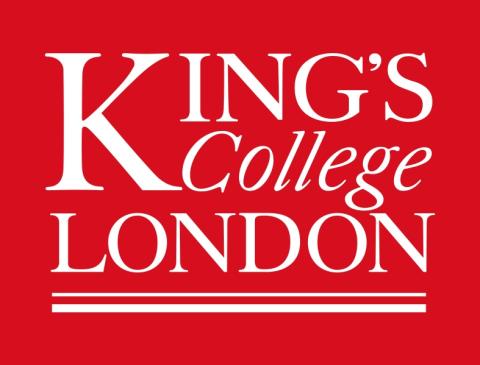


A diverse research portfolio
Collaborating with the UK DRI provides access to a diverse portfolio of science, spanning across disease areas, techniques and approaches, from synthetic biology to clinical trial innovation, and discovery science to care research. Our team includes world leaders working at the very cutting edge of areas including fluid biomarkers (Zetterberg), the role of amyloid (Hardy and De Strooper), genetics (Williams), data science (Escott-Price), Huntington's (Tabrizi), and many more. The UK DRI was designed from the start to be intensively multi-disciplinary, and some of our most innovative breakthroughs have come from collaborations across these disciplines.
To reflect the range and diversity of scientific programmes within the UK DRI, we offer a variety of models for external collaborations. Our Business & Innovation and Science teams work to facilitate bespoke partnerships that are tailored according to the research, to maximise the scientific potential of every individual project.
Latest partnerships

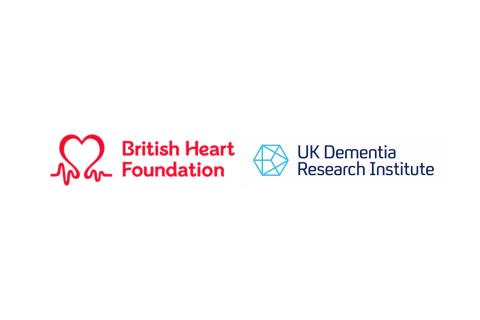
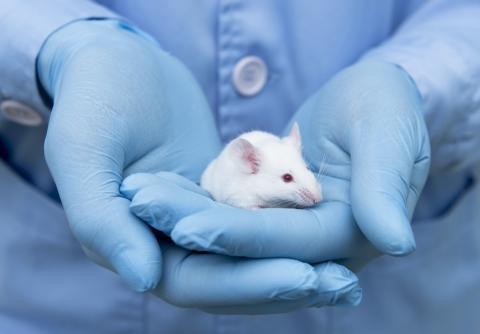
Contact

